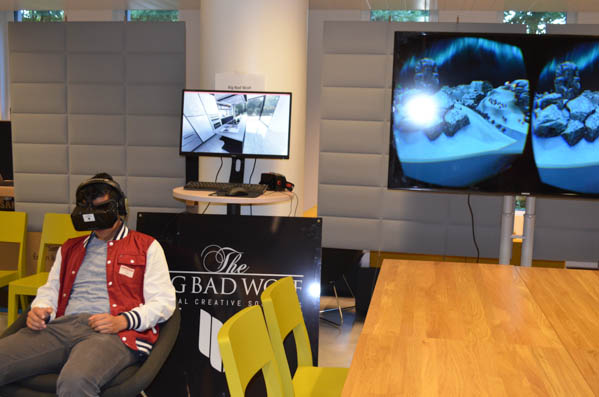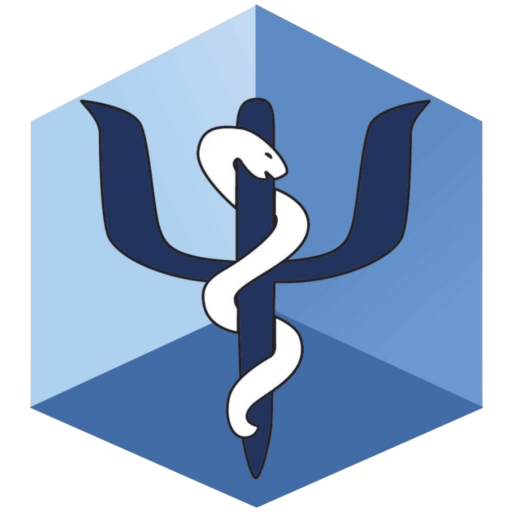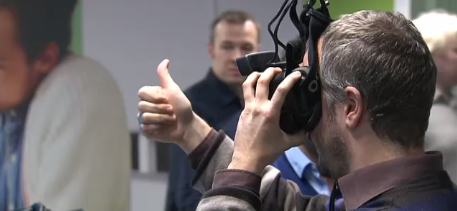
Every two months, Virtual Reality in Belgium (BE.VR) hosts a meet-up in which new ideas and innovations are introduced and shared with members of the virtual reality community. On Thursday, June 4th, new interns William Zhu, Emily LaFond, and Miranda Lin attended this event that featured various presentations from VR companies. They were even given the opportunity to try their new software and products! Here is what they had to say:
“The Virtual Reality in Belgium (BE.VR) conference was a rather unique and unexpected event that I had the honor to attend during my internship with VRMI. It was eye opening to see how far the developers have come to creating a virtual world with tools such as Oculus Rift. Trying on the devices felt surreal. It felt as if another world suddenly emerged in front of my eyes.
Although most people are excited about virtual reality for the entertainment aspect of it, and I won’t deny that I am either, I see a lot of potential for this in other fields. For example, the unprecedented improvement from Oculus can be the next big thing for virtual medical programs, allowing professionals to deal with patients that suffer from PTSD and various phobias more efficiently. With the continuing and rapid advancement of our technology, I can see an increasing demand for virtual medics every day. This could be the future of psychology. Furthermore, virtual reality can play a huge role in training purposes, whether it is for military, police, firefighters, etc. It can sufficiently mimic the situation and trick your brain into believing the scenario. With virtual reality, we will have more trained and better prepared law enforcers and public servants!
Virtual reality has garnered a lot of attention lately from the public, which makes me feel optimistic about the future of this field of technology. It could be a game changer!”
-William Zhu

Intern Will Zhu trying out a product from The Big Bad Wolf, a Belgian based VR company. Photo courtesy of BE.VR
“The Belgium Virtual Reality Meetup was a great way to be introduced to the industry. Prior to the event, I had little knowledge of virtual reality and its use in society. I understand that virtual reality (VR) is an innovative and fast-growing industry that does not entirely dedicate itself to healthcare and therapy. In fact, the majority of VR presented at the event was focused on media purposes including the video gaming and film production industries. We heard from about five different companies and the products they offer. Most of them create software for better VR and more realistic simulations.
I had the opportunity of trying out some of the products before the presentations began. Their dedication and excitement for their demos was overwhelming, which only reinforces their passion for virtual reality. Most companies were based out of Belgium, however, there were others from various parts of Europe including Denmark and France. It was exciting to see the diversity among the products within the virtual reality industry. Although most of the presentations were geared toward the gaming and film industries, I realize VR’s potential for enhancing healthcare treatments specifically for mental health and pain management. The innovation and further development of VR has no intention of slowing down, providing VRMI with an optimistic future!”
-Emily LaFond

Conference attendee experiencing Vector VR’s driving simulation through the Oculus Rift. Photo courtesy of BE.VR
“The virtual reality event on Thursday was very impressive. It was inspirational to see how VR can be applied to various areas. For example, the ASPIC Technologies group showed us a demo of their virtual reality software, which can be applied in the film or gaming industries. The scenes are so realistic that you forget it is indeed virtual reality. They also presented another technology involving human action. In this virtual reality scene, there were three cubes with different colors that were mixed together in a box and I could use my hands to separate them. After using these demos, I could begin to compare the various products and determine the one that appeared most realistic.
In addition to my hands-on experience, I also had the chance to talk to the Vection VR group. The group is aiming to use the Oculus Rift to create vivid driving scenes, enhancing the customer’s experience. This technology can be used for driving schools, racing practices, and at-home video games. Another fascinating company was PsyNAPS, who is aiming to use their new technology to percept the neural process and action behaviour in order to develop treatment exercise.
Although the virtual reality is very impressive, you can still feel the difference when the scene is moving. For example, the cube and racing experience I tried did not entirely sync with my movement. If the VR cannot give the same experience to the patient as reality does, then we need to be more cautious when evaluating the effectiveness of the treatment. I also had the chance to talk to a woman at the conference who is doing marketing for her VR company. I admired her methods and hope that VRMI can continue to market itself in Europe as our treatment has proven to be helpful to our patients.”
-Miranda Lin






